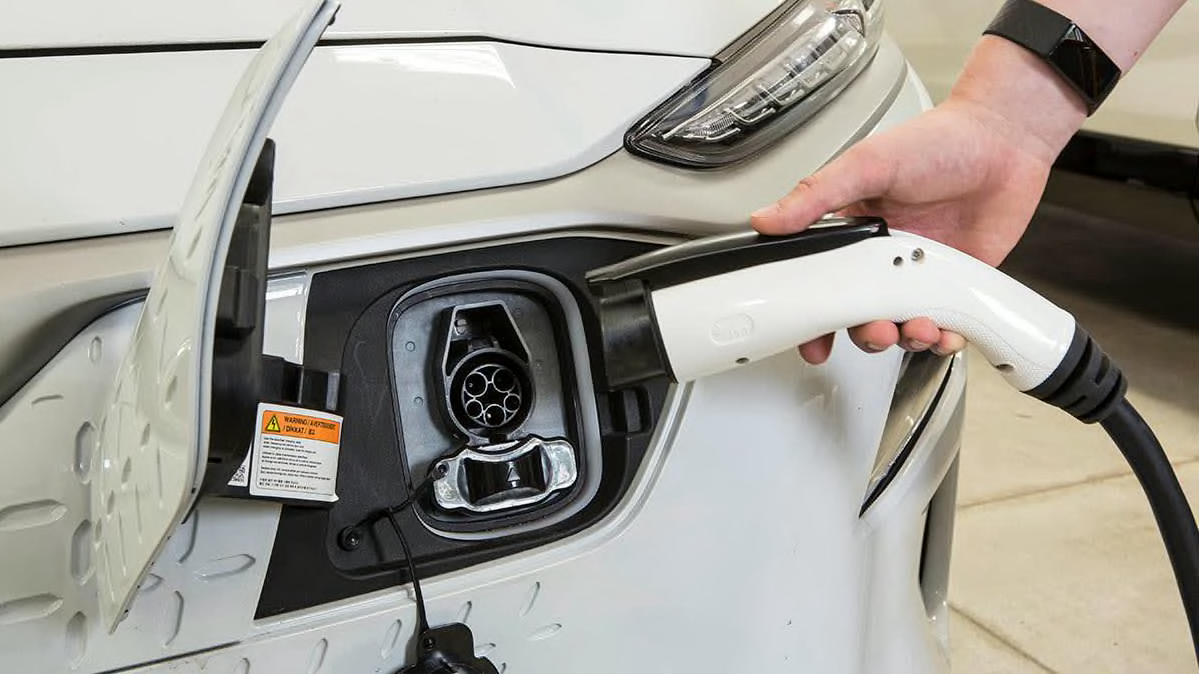How to charge an electric car at home
To charge an electric car at home, you should have a home charging point installed where you park your electric car. You can use an EVSE supply cable for a 3 pin plug socket as an occasional back up.
Drivers usually choose a dedicated home charging point because it’s faster and has built-in safety features.
A home charger is a compact weatherproof unit that mounts to a wall with a connected charging cable or a socket for plugging in a portable charging cable.
Dedicated home charging points are installed by qualified specialist installers
You can charge an electric car at home using a dedicated home charging point (a standard 3 pin plug with an EVSE cable should only be used as a last resort).
Electric car drivers choose a home charging point to benefit from faster charging speeds and built-in safety features.
Charging an electric car is like charging a mobile phone – plug in overnight and top up during the day.
It’s useful to have a 3 pin charging cable as a backup charging option, but they are not designed to withstand the necessary charging loads and should not be used long term.
Cost of installing a dedicated home charger
A fully installed home charging point costs from £449 with the government OLEV grant.
Electric car drivers benefit from a £350 OLEV grant for purchasing and installing a home charger.
Once installed, you only pay for the electricity you use to charge.
The typical electricity rate in the UK is just over 14p per kWh, while on Economy 7 tariffs the typical overnight electricity rate in the UK is 8p per kWh.
Visit “Cost of charging an electric car” to learn more about the cost of charging at home and “OLEV Grant” to get a deeper understanding of the grant.
How fast you can charge an electric car at home
Charging speed for electric cars is measured in kilowatts (kW).
Home charging points charge your car at 3.7kW or 7kW giving about 15-30 miles of range per hour of charge (compared to 2.3kW from a 3 pin plug which provides up to 8 miles of range per hour).
Maximum charging speed may be limited by your vehicle’s onboard charger. If your car allows up to 3.6kW charging rate, using a 7kW charger will not damage the car.
For more details on the time it takes to charge at home, please visit “How Long Does It Take to Charge an Electric Car?”.
How to get an electric car charging point installed at home
How often should you charge an electric car at home
You can charge your electric car at home as often as you need to. It can be treated the same as charging a mobile phone, fully charging overnight and topping up in the day if necessary.
While it is not necessary for most to charge every day, many drivers plug in each time they leave their car out of habit, giving them maximum flexibility should they have to make an unexpected journey.
By charging overnight, electric car drivers can take advantage of cheap nighttime electricity rates and drive for as little as 2p per mile.
Overnight charging also ensures that the car’s battery is full each morning for the day ahead. You don’t need to unplug once the battery is full, charging will stop automatically with a dedicated home charger.
Most drivers also make use of charging facilities at their workplace or public destinations to top up charge.
Optimising charging at home
As more people charge their electric cars at home, smart home chargers are a way to tackle new energy related challenges that will arise for drivers and networks.
Cheaper energy
While an EV driver is saving money overall by powering their car with electricity rather than fossil fuels, their home energy bill will still be bigger than it was before. The good news is, unlike fossil fuels, there are lots of things that can be done to understand and reduce the cost of electricity to get further savings.
Many smart home chargers monitor home and EV energy usage so you can get a clear understanding of cost per kWh, which enables you to determine how much you are spending and switch to cheaper tariffs. Also, plugging in overnight may allow you to take advantage of the cheaper Economy 7 tariff.
Greener energy
Today an electric car is already greener than a combustion engine vehicle, but charging with ever more renewable energy makes electric car driving even more environmentally friendly.
The UK’s grid is continually getting greener with more and more renewable energy generation, such as wind power. While this means charging electric cars is getting more environmentally friendly overall, you can switch to one of the many renewable energy providers to make charging at home even greener.
Managing load on home energy supply
Charging an electric car at home places additional load on your electrical supply. Depending on the max charging rate of your chargepoint and vehicle, this load can damage your main fuse.
To avoid overloading your main fuse, some smart home chargers automatically balance the power drawn by your chargepoint with the rest of yo
Post time: Jan-30-2021






